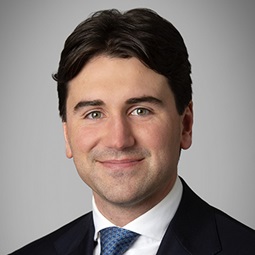In the latest landmark achievement in the MF Global UK Limited (in special administration) (MFG UK) case, the High Court has approved a ground-breaking settlement agreement which will help facilitate the final distribution and closure of the approximately $1 billion client money pool held by MFG UK.
Prior to its entry into administration, MFG UK had failed to segregate certain clients’ funds and positions as client money. This gave rise to potential breach of trust and tracing claims on the part of the client money pool against MFG UK’s non-segregated general estate.
The client money pool could not make a final distribution and close until such potential claims had been resolved. Resolution by way of litigation and a tracing exercise could have taken several years and cost millions of dollars, which would have eroded value and delayed distributions to clients and creditors.
Weil, together with external counsel, devised a ground-breaking procedure for negotiating and implementing a settlement of these issues without the need for litigation or delay. On 1 May 2014, the Administrators sought and obtained the Court’s permission to negotiate a settlement on the basis of that procedure.
For the negotiation, KPMG partner Richard Heis was appointed to represent MFG UK’s general estate, advised by a team from Weil led by restructuring partner Mark Lawford. Richard Fleming, partner and UK Head of Advisory at KPMG, was appointed to represent the client money pool alongside KPMG partner Richard Faulkner, and was advised by a team from Weil led by restructuring partner Paul Bromfield.
The negotiations were successful and on 3 July 2014 the Court granted permission to enter into the proposed settlement agreement, resolving not only the potential breach of trust and tracing claims, but also the majority of other outstanding issues for the client money pool ““ including a sale of unrealised assets to the general estate.
Of the landmark settlement, Paul Bromfield commented that, “This success for KPMG is the latest in a series of efforts that have enabled them to administer the MFG UK estates in a pragmatic and cost-efficient manner, resulting in faster returns to clients and creditors.”
Mark Lawford added that, “The approval of this unique settlement, negotiated through a ground-breaking procedure, will facilitate the timely distribution of the remainder of the $1 billion client money pool without the need for time consuming and costly litigation, to the benefit of all clients and creditors of MFG UK.”
The Client Money Resolution Application was led by partners Mark Lawford and Paul Bromfield in Weil’s London Restructuring team, assisted by counsel Linton Bloomberg and associates Tom Laidler, Kirsten Erichsen, Clementine Dowley and Laura Murray. The Administrators were represented in Court by Antony Zacaroli QC and Adam Al-Attar (for the client money pool) and Martin Pascoe QC and Daniel Bayfield (for the general estate), all of 3/4 South Square.
As part of its continued representation of the Administrators of MFG UK, which is the largest European collapse since Lehman, Weil is fielding a multi-disciplinary, multi-jurisdictional team, led by Adam Plainer. The judgment on 3 July 2014 follows a series of “historic” and unprecedented landmark Court approvals, including the first distribution plan for the return of client assets under the special administration regime and the first distribution procedure for the return of client money.
The London Restructuring team has been awarded “Restructuring Team of the Year” for its lead role acting for KPMG as Special Administrators in the MFG UK case, twice in under six months, at the 2014 Lawyer Awards in June and in February at the 2014 Legal Business Awards.
Contributor(s)

More from the Weil European Restructuring Blog
This website is maintained by Weil, Gotshal & Manges LLP in New York, NY © 2020 Weil, Gotshal & Manges LLP, All Rights Reserved. The contents of this website may contain attorney advertising under the laws of various states. Quotation with attribution is permitted. This publication is provided for general information purposes only and is not intended to cover every aspect of the purpose for the law. The information in this publication does not constitute the legal or other professional advice of Weil London or the authors. The views expressed in this publication reflect those of the authors and are not necessarily the views of Weil London or of its clients. These materials may contain attorney advertising. Prior results do not guarantee a similar outcome.






















